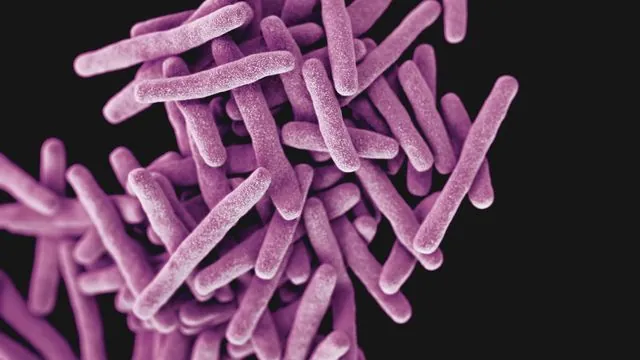
Breakthrough Discovery Unveils Key Mechanism to Revitalize Immune Response After Infections—Are We on the Brink of a Medical Revolution?
2024-10-01
Breakthrough Discovery Unveils Key Mechanism to Revitalize Immune Response After Infections
In an exciting discovery, researchers from Baylor College of Medicine and associated institutions have unveiled a crucial mechanism responsible for the prolonged decline in immune response following treatment for tuberculosis (TB). Published in the prestigious Proceedings of the National Academy of Sciences, this groundbreaking research opens the door to potential new strategies to restore immune function and decrease mortality risk after severe infections.
The Research and Its Findings
Dr. Andrew DiNardo, the study's corresponding author and an associate professor specializing in infectious diseases, stated, “Sepsis and TB can lead to a dramatic loss of protective immune responses, significantly increasing mortality even after successful treatment. Our study delves into the factors that drive the disruption of immune function post severe infections.”
Previous research has established that severe and chronic infections, both in humans and animals, can lead to persistent epigenetic alterations—changes in the chemical markings on DNA that regulate gene expression. Specifically, researchers found that TB infection introduces excess methylation tags to critical immune response genes, thereby hindering the body’s ability to produce essential immune proteins and leaving individuals vulnerable to additional infections.
Understanding Epigenetic Changes
However, understanding how these epigenetic changes occur during infections has remained elusive. In this study, DiNardo and his colleagues explored the role of the tricarboxylic acid (TCA) cycle—central to cellular metabolism—and its influence on DNA methylation in the aftermath of infections.
Through laboratory experiments, the researchers observed that human immune cells exposed to bacterial lipopolysaccharide (a component of bacterial cell membranes) and Mycobacterium tuberculosis became immune-tolerant. They also noted that patients suffering from both sepsis and TB exhibited elevated TCA activation correlated with increased DNA methylation. Remarkably, when TB patients received traditional therapy combined with everolimus (a TCA inhibitor), the harmful methylation modifications on their DNA were significantly reduced, signaling a promising avenue for restoring immune health.
A Path Toward Restoration
Dr. DiNardo emphasized the importance of this finding, stating, “TB is a unique disease; diagnosis often occurs after three or more months of symptoms. By incorporating everolimus into the standard antibiotic regimen, we can substantially lower detrimental DNA methylation markers even six months into treatment. This paves the way for potential epigenetic healing.”
Broader Implications
Dr. Cristian Coarfa, a co-author and associate professor of molecular and cellular biology, added, “What we have discovered could transform the current understanding of post-infection recovery. Our methods are not confined to just tuberculosis; the implications of our findings might extend to various infectious diseases.”
Future Directions
Looking ahead, the researchers aim to identify specific epigenetic markers linked to increased health risks in post-TB patients. Their ultimate goal is to develop effective host-directed therapies that can repair the epigenetic damage sustained during severe infections.
Conclusion
This revolutionary research not only offers hope to TB and sepsis patients, but it also sets the stage for a fundamental shift in how we approach recuperation from a range of infectious diseases. Imagine a future where medical professionals can effectively ‘reset’ the immune system, drastically improving outcomes for millions. Stay tuned as this groundbreaking work continues to unfold!



 Brasil (PT)
Brasil (PT)
 Canada (EN)
Canada (EN)
 Chile (ES)
Chile (ES)
 España (ES)
España (ES)
 France (FR)
France (FR)
 Hong Kong (EN)
Hong Kong (EN)
 Italia (IT)
Italia (IT)
 日本 (JA)
日本 (JA)
 Magyarország (HU)
Magyarország (HU)
 Norge (NO)
Norge (NO)
 Polska (PL)
Polska (PL)
 Schweiz (DE)
Schweiz (DE)
 Singapore (EN)
Singapore (EN)
 Sverige (SV)
Sverige (SV)
 Suomi (FI)
Suomi (FI)
 Türkiye (TR)
Türkiye (TR)